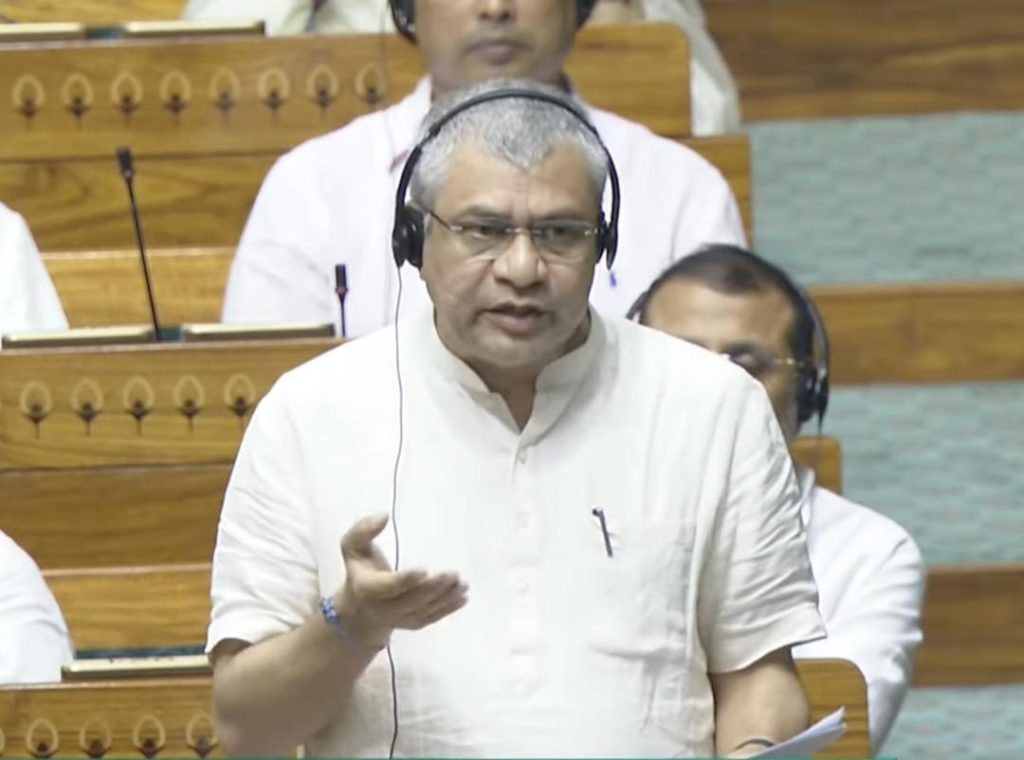
Title: Between our revenue & middle-class families, PM chose families: Vaishnaw on Gaming Bill
In a recent development, the Indian government has introduced the Promotion and Regulation of Online Gaming Bill 2025 in the Lok Sabha, aiming to regulate the rapidly growing online gaming industry in the country. Union Minister Ashwini Vaishnaw, while introducing the bill, made a significant statement that has caught the attention of many. He said that Prime Minister Narendra Modi always chooses middle-class families when choosing between them and government’s revenue.
The statement was made while Vaishnaw was justifying the ban on real-money and gambling games in the bill. He emphasized that the government’s primary objective is to save the society from the negative impact of such games. The bill was passed on Wednesday, and it has sparked a heated debate in the country.
Vaishnaw’s statement is significant because it highlights the government’s priorities when it comes to regulating the online gaming industry. The bill aims to promote a responsible and safe gaming environment, but many have raised concerns that it may stifle innovation and growth in the industry. The government’s decision to ban real-money and gambling games has been criticized by many, who argue that it will drive the industry underground and create a black market.
However, Vaishnaw’s statement suggests that the government is more concerned about the impact of these games on middle-class families than on the revenue it may generate. The minister’s statement is a testament to the government’s commitment to protecting the welfare of citizens, particularly the middle-class families who are the backbone of the Indian economy.
The Promotion and Regulation of Online Gaming Bill 2025 is a comprehensive legislation that aims to regulate the online gaming industry in India. The bill defines online gaming as any game played online, including multiplayer games, esports, and fantasy sports. It also establishes a regulatory body to oversee the industry and ensure that it operates in a responsible and safe manner.
The bill prohibits real-money and gambling games, which are considered harmful to society. It also prohibits games that promote or encourage violence, discrimination, or other negative behaviors. The bill also requires online gaming companies to obtain a license from the regulatory body and comply with certain standards and guidelines.
The government’s decision to regulate the online gaming industry is a positive step, as it aims to protect consumers and promote a responsible and safe gaming environment. The bill also aims to promote the growth and development of the gaming industry, which is a significant sector in the Indian economy.
However, the bill has been criticized by many in the gaming industry, who argue that it is overly restrictive and may stifle innovation and growth. They argue that the ban on real-money and gambling games will drive the industry underground and create a black market. They also argue that the regulatory body established by the bill will be bureaucratic and ineffective in regulating the industry.
Despite these criticisms, the government’s decision to regulate the online gaming industry is a positive step. The bill aims to protect consumers and promote a responsible and safe gaming environment, which is essential for the growth and development of the industry. The government’s commitment to protecting the welfare of citizens, particularly middle-class families, is also commendable.
In conclusion, the Promotion and Regulation of Online Gaming Bill 2025 is a significant legislation that aims to regulate the online gaming industry in India. The bill defines online gaming as any game played online, including multiplayer games, esports, and fantasy sports. It also establishes a regulatory body to oversee the industry and ensure that it operates in a responsible and safe manner.
The bill prohibits real-money and gambling games, which are considered harmful to society. It also prohibits games that promote or encourage violence, discrimination, or other negative behaviors. The bill also requires online gaming companies to obtain a license from the regulatory body and comply with certain standards and guidelines.
The government’s decision to regulate the online gaming industry is a positive step, as it aims to protect consumers and promote a responsible and safe gaming environment. The bill also aims to promote the growth and development of the gaming industry, which is a significant sector in the Indian economy.
Sources:






